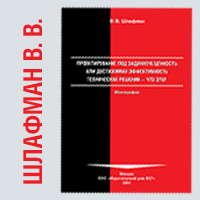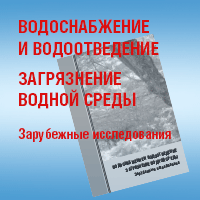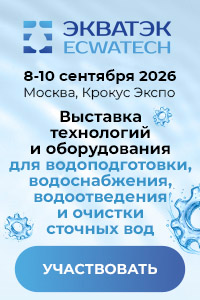№5|2022
WASTE MANAGEMENT
DOI 10.35776/VST.2022.05.07
UDC 691.215.1:691.5:628.544
Production of synthetic gypsum from water treatment wastes, i. e., incompletely burned lime
Summary
Synthetic gypsum is a material that is produced in the process of sulfuric acid interacting with carbonate-containing materials. It is a promising analogue of natural gypsum for those countries that do not have deposits of natural gypsum stone. Synthetic gypsum produced on the basis of incompletely burned lime, can be attributed to the first grade of gypsum; however, there are significant differences from natural gypsum confirmed by the results of differential thermal analysis. The main peaks of the effects are shifted down by 30–50°C owing to the higher reactivity of the synthesized material. In the production of synthetic gypsum, a by-product is generated, i. e., a filtrate that contains salts (sulfates) of sodium, potassium, magnesium, which opens up the possibility of using it as a complex micro fertilizer.
Key words
water treatment , incompletely burned lime , synthetic gypsum , micro fertilizer
The further text is accessible on a paid subscription.
For authorisation enter the login/password.
Or subscribe
REFERENCES
- Romanovski V. I. [Analysis of pollution of drinking water sources in the Republic of Belarus]. Vestnik BrGTU. Water Engineering, Thermal Power Engineering and Geoecology, 2014, no. 2, pp. 65–67. (In Russian).
- Romanovski V. New approach for inert filtering media modification by using precipitates of deironing filters for underground water treatment. Environmental Science and Pollution Research, 2020, no. 27, 31706–31714.
- Romanovski V., et al. Recycling of iron-rich sediment for surface modification of filters for underground water deironing. Journal of Environmental Chemical Engineering, 2021, v. 9 (4), pp. 105712.
- Pappu A., Saxena M., Asolekar S. R. Solid wastes generation in India and their recycling potential in building materials. Building and Environment, 2007, v. 42, no. 6, pp. 2311–2320.
- Karavaitsev B. V. [Pat. 2114945, RF. MPC D21C 11/00, D21C 11/06. Method for thermal treatment of lime sludge and installation for its implementation]. Izobreteniia. Poleznye Modeli, 1998, no. 21. (In Russian).
- Kamarou M., et al. Structurally controlled synthesis of calcium sulphate dihydrate from industrial wastes of spent sulphuric acid and limestone. Environmental Technology & Innovation, 2020, v. 17, p. 100582.
- Kamarou M. А., Korob N. G., Romanovski V. I. [Synthesis of calcium sulfate dihydrate from technogenic raw materials]. Vestnik Polotskogo Gosudarstvennogo Universiteta, F Series: Construction. Applied Sciences, 2020, no. 16, pp. 76–82. (In Russian).
- Kamarou M., et al. Low-energy technology for producing anhydrite in the CaCO3–H2SO4–H2O system derived from industrial wastes. Journal of Chemical Technology & Biotechnology, 2021, v. 96 (7), pp. 2065–2071.
- Kamarou M., et al. High-quality gypsum binders based on synthetic calcium sulfate dihydrate produced from industrial wastes. Journal of Industrial and Engineering Chemistry, 2021, v. 100, pp. 324–332.







